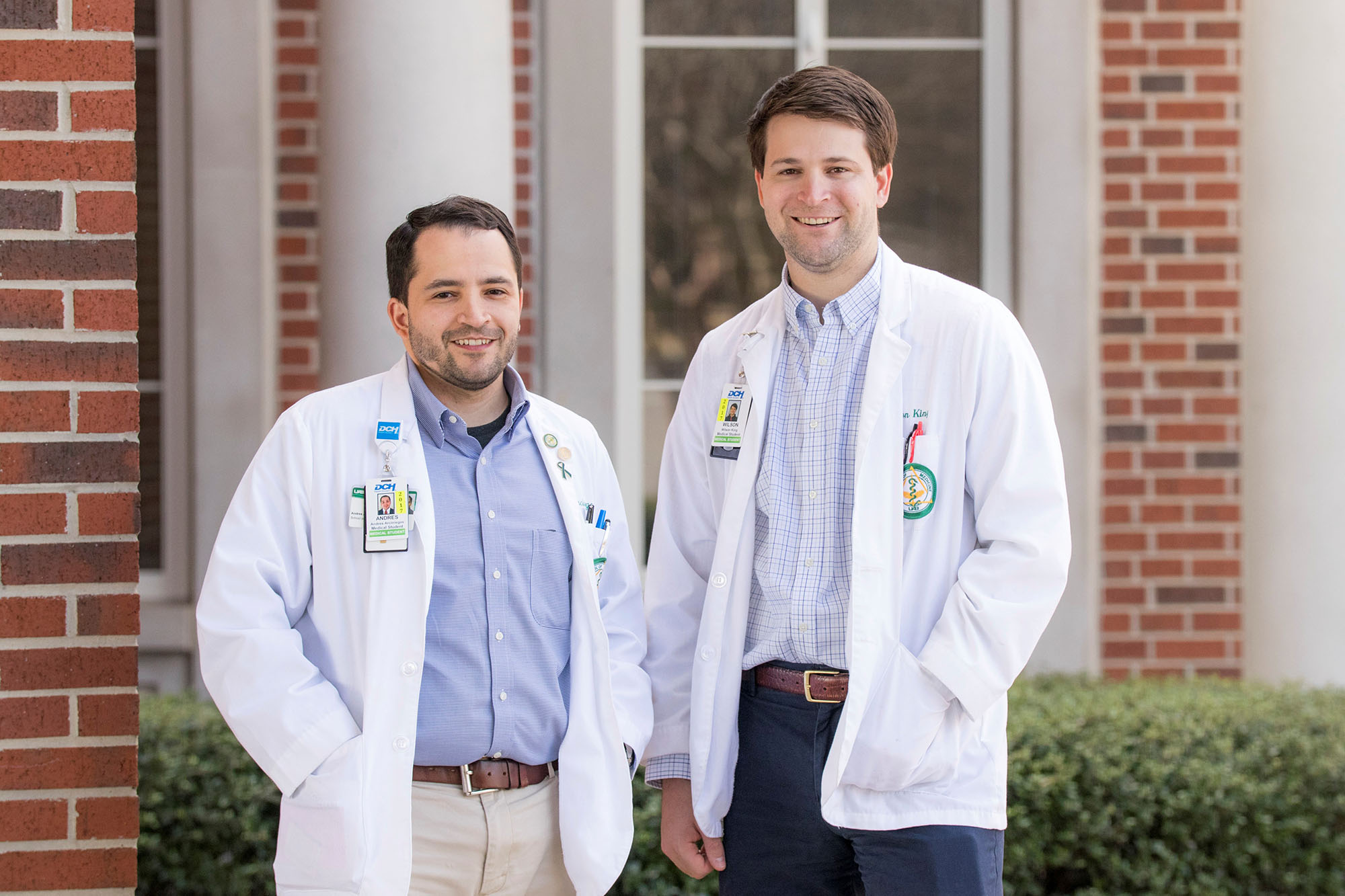 Two School of Medicine students at the Tuscaloosa Regional Campus are researching the effectiveness and cost benefits of a University of Alabama-City of Tuscaloosa program to treat 911 callers with low-emergency conditions at the scene.
Two School of Medicine students at the Tuscaloosa Regional Campus are researching the effectiveness and cost benefits of a University of Alabama-City of Tuscaloosa program to treat 911 callers with low-emergency conditions at the scene.
The program, ACTION (Appropriate Care and Treatment in Our Neighborhoods), aims to meet less critical medical needs of the community and reduce costly ambulance transports of people with low-emergency conditions, thereby reducing costs for patients and communities and easing emergency room overcrowding.
First responders routinely answer “low-acuity” calls for things like minor falls, cuts, headaches, elevated blood pressure, and abdominal pain, often transporting callers to hospital emergency rooms. The University of Alabama’s College of Community Health Sciences and the Tuscaloosa Fire and Rescue Services partnered last year to create ACTION, a first-of-its-kind program in Alabama.
“This program is unique because it’s the first such collaboration between UA and a municipality,” says Richard Friend, M.D., co-director of ACTION and chair of the College’s Department of Family, Internal, and Rural Medicine. “We’re creating an innovative and common sense solution so that we can better utilize the resources of hospitals and the city.”
In 2016, 26 percent of 911 calls in Tuscaloosa were considered low-level emergency. Each call costs about $645. Therefore, avoiding ambulance rides for this purpose could save $1.7 million in transportation costs and reduce unnecessary hospital admissions and emergency room treatments. “Using data from Medicaid, the analysis will aim to quantify potential savings achieved by diverting low-acuity patients from the emergency department,” says third-year medical student Andres Arciniegas.
“I anticipate substantial cost savings to Medicaid and other payers, lower unreimbursed emergency department costs, and increased patient satisfaction,” adds Wilson King, a third-year M.D./MBA track student.
Arciniegas agrees and notes he understands the burden health care organizations face when patients do not properly utilize emergency services. “I am confident our work will help ensure efficient allocation of limited resources for the purpose of delivering high-quality health care to the community,” he says.
